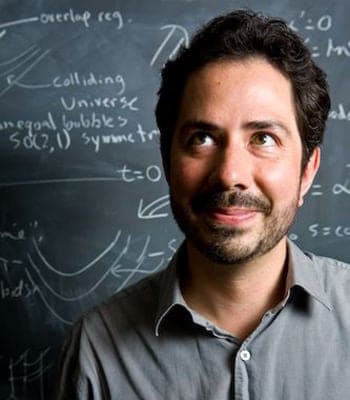Emilia Javorsky | FLI

Contents
Emilia Javorsky | FLI
Physician-Scientist
What advice do you have for people coping with this crisis?
Advice is hard to give in a crisis, as how people cope with uncertainty is very personal. For me, part of it is accepting this is hard, many things are beyond our control, and it’s ok to feel frustrated and sad about that. Find the bright spots in this temporary way of living, and take solace in knowing that this will end. Also acknowledging that the ability to stay safe and cope with COVID-19 is sadly unevenly distributed across socioeconomic lines. It is much easier to deal with this crisis if you are able to stock up food, shelter at home and work from there. So also focusing on gratitude for being able to stay safe if you’re privileged to be in that boat, and staying home to protect others. Also, for me, limiting my reading of the news to once a day has been really helpful in not getting overwhelmed by all of the information, and misinformation, out there.
What do we need to do to be prepared for future pandemics?
Beyond ensuring appropriate stockpiles of medical equipment and supplies, and identifying and mitigating supply chain vulnerabilities, for future pandemics it’s become clear we need a robust, international, coordinated response at earliest signs of an outbreak. I think COVID-19 has been a painful lesson in exponentials, and there is now a widespread appreciation by both the public and policy makers of why early action is vital to pandemic control. Beyond coordination, there is also a need to examine how we can harness, develop, and deploy technology to massively improve our ability to detect and contain future pandemics at the first signs to prevent global spread. Such real time monitoring data would also be very helpful for the dissemination clinical and genomic data about the pathogen.
What can we learn from COVID-19 about other catastrophic risks like nuclear war, AI, etc?
COVID-19 is a cautionary tale, as we see the devastating impact it has had worldwide, and it does not even meet the conventional definition of a global catastrophic risk. It has shown us that bad things happen, we’re not well prepared to deal with them, and that we’re left selecting between bad outcomes, when the only good outcome would have been prevention. Prevention as the only path to a good outcome is at the core of each of the catastrophic risks, and it’s my hope that a silver lining of COVID-19 will be renewed interest, efforts and resources in risk mitigation and safety engineering. This is especially relevant when we think of things such as accidental nuclear war, which is entirely solvable with our resources and knowledge today. Similarly, when we think towards AI risk, while there are unknowns here, there is so much we can do in terms of safety engineering to mitigate foreseeable risks going forward, same goes for the risks of synthetic biology.
What can we learn from COVID-19 about how to make humanity more resilient in general?
I’m hoping that COVID-19 will enable us, as a society, to actually see the value of prevention. My background is in medicine and public health. The medical community has known for decades there is less suffering and expense to preventing disease as opposed to treating it, but preventative health has always struggled for resources that are event remotely in the ballpark of those allocated to therapeutics development. I think this is a similar metaphor of thinking about how we boost humanity’s resilience to these sorts of events: you need to invest in robust mitigation and contingency planning as well as the development of interventions if those preventative measures fail. Inherent to this approach is an ability to engage in long term thinking, which has not been humanity’s strong suit to date. Here’s hoping that this terrible tragedy can spur a shift in the positive direction.
About the Future of Life Institute
The Future of Life Institute (FLI) is a global think tank with a team of 20+ full-time staff operating across the US and Europe. FLI has been working to steer the development of transformative technologies towards benefitting life and away from extreme large-scale risks since its founding in 2014. Find out more about our mission or explore our work.
Related content
Other posts about COVID-19

Yi Zeng | Chinese Academy of Sciences/BAAI

Anthony Aguirre | UC Santa Cruz

Huw Price | University of Cambridge/CSER

